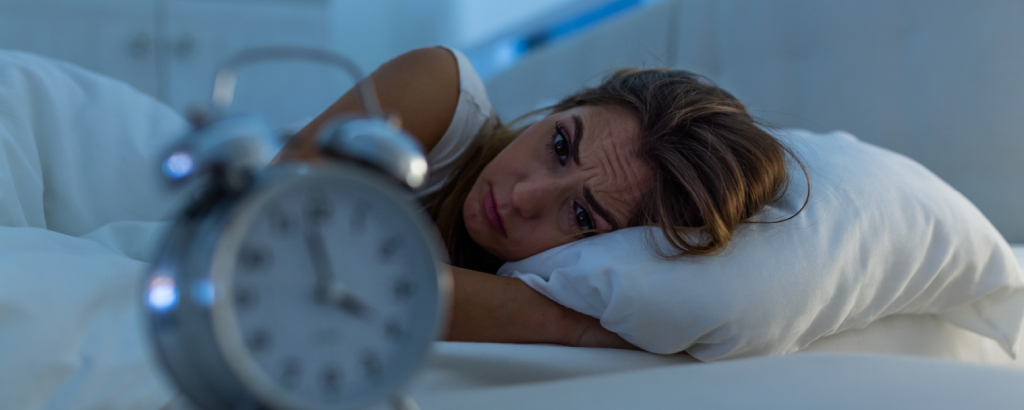In the serene hours of the night, when the world is enveloped in darkness and tranquility, sleep should come naturally. However, for many women, the elusive embrace of slumber remains out of reach, leaving them tossing and turning in the grip of insomnia. Insomnia, characterized by difficulty falling asleep, staying asleep, or experiencing restorative sleep, affects females disproportionately compared to males. In this article, we delve into the multifaceted causes of insomnia in women, shedding light on the physiological, psychological, and lifestyle factors that contribute to their sleepless nights.
Understanding Insomnia in Females
Insomnia is more than just a mere inconvenience; it is a complex sleep disorder that can have far-reaching consequences on a woman’s physical health, mental well-being, and overall quality of life. While occasional bouts of sleeplessness are common and often transient, chronic insomnia can become a debilitating condition that disrupts daily functioning and exacerbates existing health issues.
Physiological Causes
Hormonal Fluctuations
One of the primary physiological factors contributing to insomnia in females is hormonal fluctuations. Throughout a woman’s life, hormonal changes occur during various stages, such as menstruation, pregnancy, perimenopause, and menopause. These fluctuations can disrupt the delicate balance of neurotransmitters and hormones involved in regulating the sleep-wake cycle, leading to sleep disturbances.
- Menstrual Cycle: The fluctuation of estrogen and progesterone levels during the menstrual cycle can impact sleep quality, particularly during the premenstrual and menstrual phases when symptoms such as pain, discomfort, and mood changes are prevalent.
- Pregnancy: Hormonal shifts during pregnancy, combined with physical discomfort and frequent urination, can contribute to insomnia in expectant mothers, especially during the later stages of pregnancy.
- Menopause: The transition into menopause is often accompanied by sleep disturbances, including hot flashes, night sweats, and changes in sleep architecture. Decreases in estrogen levels can also affect mood and cognitive function, further exacerbating insomnia.
Medication Eszopiclone
Eszopiclone, marketed under the brand name Lunesta , is a prescription medication used to treat insomnia characterized by difficulty falling asleep or staying asleep. It belongs to a class of drugs known as non-benzodiazepine sedative-hypnotics, specifically classified as a cyclopyrrolone compound. Eszopiclone works by interacting with the gamma-aminobutyric acid (GABA) receptors in the brain, which helps to enhance the calming effects of GABA neurotransmitters, leading to sedation and sleep induction.
How Eszopiclone Works:
- GABAergic Effects: Like other sedative-hypnotic medications, eszopiclone primarily targets the GABA receptors in the brain. By enhancing the activity of GABA, which is an inhibitory neurotransmitter, eszopiclone promotes relaxation, reduces anxiety, and facilitates the onset of sleep.
- Sleep Maintenance: Eszopiclone drug in Lunesta 3 mg is also effective in helping individuals stay asleep throughout the night. By prolonging the duration of sleep and reducing the number of awakenings, it improves sleep continuity and overall sleep quality.
- Circadian Rhythm Regulation: Eszopiclone may also have an impact on the body’s circadian rhythm, the internal biological clock that regulates the sleep-wake cycle. By aligning sleep patterns with the natural circadian rhythm, eszopiclone can promote a more regular and predictable sleep schedule.
Psychological Causes
Stress and Anxiety
The intricate interplay between the mind and body plays a significant role in the development and exacerbation of insomnia in females. Women are more likely than men to experience stress and anxiety disorders, which can manifest as racing thoughts, rumination, and heightened arousal, making it difficult to relax and fall asleep.
- Work and Family Responsibilities: Balancing the demands of work, family, and personal life can lead to chronic stress and sleep deprivation. Women often shoulder multiple roles and responsibilities, leaving little time for self-care and relaxation.
- Psychiatric Disorders: Depression, anxiety, and other mood disorders are more prevalent in women and can significantly impact sleep quality. Sleep disturbances are a common symptom of these disorders and can exacerbate existing mental health issues.
Lifestyle Factors
Poor Sleep Hygiene
In today’s fast-paced world, with its endless distractions and digital devices, maintaining healthy sleep habits can be challenging. Poor sleep hygiene practices can disrupt the body’s natural circadian rhythm and contribute to insomnia in females.
- Screen Time: Excessive exposure to screens, such as smartphones, tablets, and computers, before bedtime can suppress the production of melatonin, the hormone responsible for regulating sleep-wake cycles, making it harder to fall asleep.
- Irregular Sleep Schedule: Inconsistent bedtimes and wake-up times can disrupt the body’s internal clock, leading to sleep fragmentation and insomnia. Establishing a regular sleep schedule can help synchronize circadian rhythms and promote better sleep quality.
Conclusion: Empowering Women to Overcome Insomnia
Insomnia is a pervasive sleep disorder that affects women across all stages of life, from adolescence to old age. By understanding the complex interplay of physiological, psychological, and lifestyle factors contributing to insomnia, women can take proactive steps to reclaim their sleep and improve their overall well-being.
From implementing relaxation techniques and stress management strategies to fostering healthy sleep habits and seeking professional help when needed, women have a multitude of tools at their disposal to combat insomnia and achieve restorative sleep. By prioritizing self-care and making sleep a non-negotiable aspect of their daily routine, women can empower themselves to overcome insomnia and embrace the rejuvenating power of a good night’s sleep.







